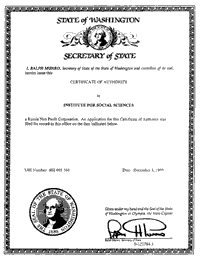E.M.C.I
Russia
is undergoing the most difficult ethical, moral, political,
and economic period of its existence. The moral and political
pendulum is frozen at the bottom of the arc. …The
greatest hope of the Russian people is the development,
the moral and ethical healing and rebirth, of the schools.
Z.I.
Batioukova and T.D. Shaposhnikova, Russian Academy of Education

About the initiative
The
philosopher Jurgen Habermas has described a world-wide youth
crisis of unprecedented proportion affecting growing numbers
of young people who find little meaning in the traditional goal
structures of work, duty, collaboration, and participation in
the commonweal. Habermas cites as primary conditions of this
crisis the rise of materialism and privatism. The crisis takes
different forms in different cultures, but the results are similar.
In wealthy societies, where material needs are largely met,
young people daily see adults, often their own parents, as preoccupied
with consumerism, as increasingly critical of those who do attempt
to make a difference in the public square while themselves withdrawing
from participation into vicarious living through film, television
and sporting events spectacles. Young people consider this,
and in their own often inarticulate way, but like Plato before
them, “withdraw in disgust from the abuses of the day.” Such
withdrawal ranges from passive forms to acting out.
In
Russia and the former Soviet Union, youth crisis has taken
its own form. Young people, whether ‘haves’ or ‘have-nots,’ are
subjected to the deleterious effects of mass media messages
of consumerism, wealth, abundance, glamorized life styles,
violence, etc. My many conversations with students in secondary
schools
have led me to believe that many of them prefer to pursue
careers in crime, prostitution, etc., rather than careers in
science,
teaching, medicine, etc. When asked to explain how the business
world (or the government, for that matter) works, they tend
to give explanations that equate business with criminal activity.
In another time, such goals might have seemed an aberration,
certainly not within the norm. There exists a sense of cynicism
about the future of society in general and about the given
individual’s
future in particular. Certainly, there are exceptions, and
there are many reasons for hope, but the need for caring, responsible
adult leadership, so lacking in young lives in this part
of
the world at this time in history, is crucial. That leadership
must come from a variety of sources, including the home,
social agencies, clubs, community, and church, but in Russia
today,
and throughout the former Soviet Union, the encounters young
people have with these nurturing groups is increasingly random.
School alone represents the intersect of common experience
and required participation for most.
Back to top
The
American philosopher John Dewey wrote that the primary purpose
of school is social. Centuries earlier, Aristotle himself
noted that social/moral education must take precedence over
academic
education in the preparation of young citizens. Of course,
both Aristotle and Dewey were fully aware of the need for
the schools
to teach literature, mathematics, history, and science. But
Dewey's argument was that the schools should be the cradle
of democracy for young people. It is at school, he reasoned
that
young people could experience community, collaboration, service,
discipline, duty, honor, and respect for others in spite
of differences. Whether schools have always lived up to this
clarion
call is debatable. But the vision of a democratic society
and the hope of a better world where freedom and opportunity
continues
to speak to us today.
That
there exists a pressing need for values and positive curricula
for teachers and students in Russian schools is widely agreed
upon.
This need is cited by officials of the Russian Ministry of
Education, the Russian Academy of Education, the University
of Russia’s
Educational Learned Society, the five campuses of Shuya State
Pedagogical University, the Moscow Institute for the Development
of Educational Systems (a leading publisher of post-Soviet
curriculum materials), and by officials from public schools
throughout
the land.
About
the Washington Institute for Social Sciences
The
Washington Institute for Social Sciences is certified
by the Office of the Secretary of State of the State
of Washington, USA. The Institute holds a Certificate
of Authority from the State of Washington and has provided
leadership in teaching, learning, and assessment as
well as a wide range of educational opportunities
for students
since its founding in 1999. The Washington Institute
is affiliated with the Center for Teaching, Learning,
and Assessment Concepts, also fully licensed in the
State of Washington, USA. Please contact Dr. Ernest
Grigorian
at info@isngrig.ru |
|
 |
About
us:
 |
|
Dr.
Arthur K. Ellis is Professor and Director of the International
Center for Curriculum Studies at Seattle Pacific University.
He serves as Vice-President of the Washington Institute
for Social Sciences. Dr. Ellis is the author of 18 published
books and many journal articles and scholarly papers.
Dr. Ellis lectures regularly in Russia and China as well
as throughout the United States. He may be contacted
at aellis@spu.edu |
 |
|
Dr.
Ernest Grigorian is Professor of Education and Sociology
at the Moscow State Pedagogical University. He is the
President of the Moscow Institute for Social Sciences
and President of the Washington Insitute for Social Sciences.
Dr. Grigorian is the author of many papers and books
in his field. He has taught in the United States and
has lectured in different sites around the world. He
may be contacted at info@isngrig.ru ,
or info@socius.ru |
Back
to top